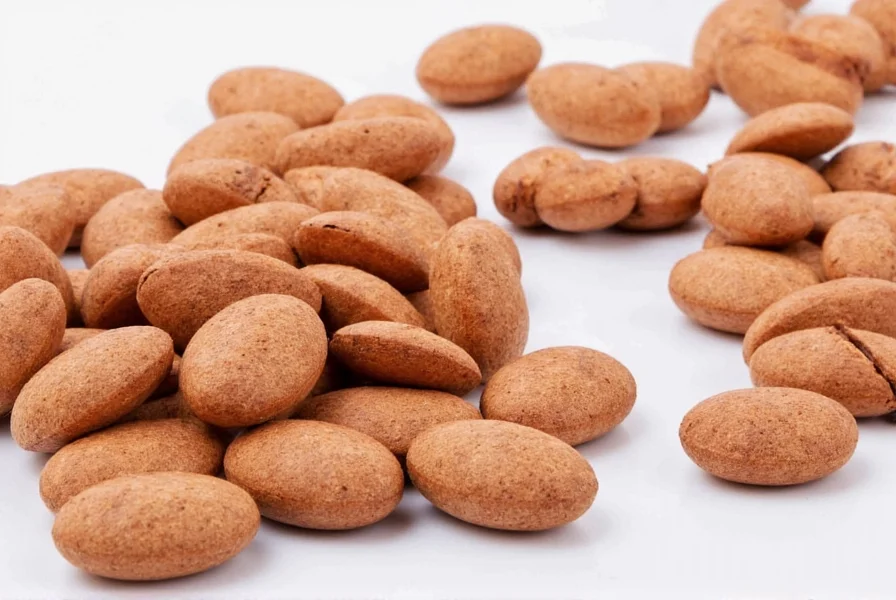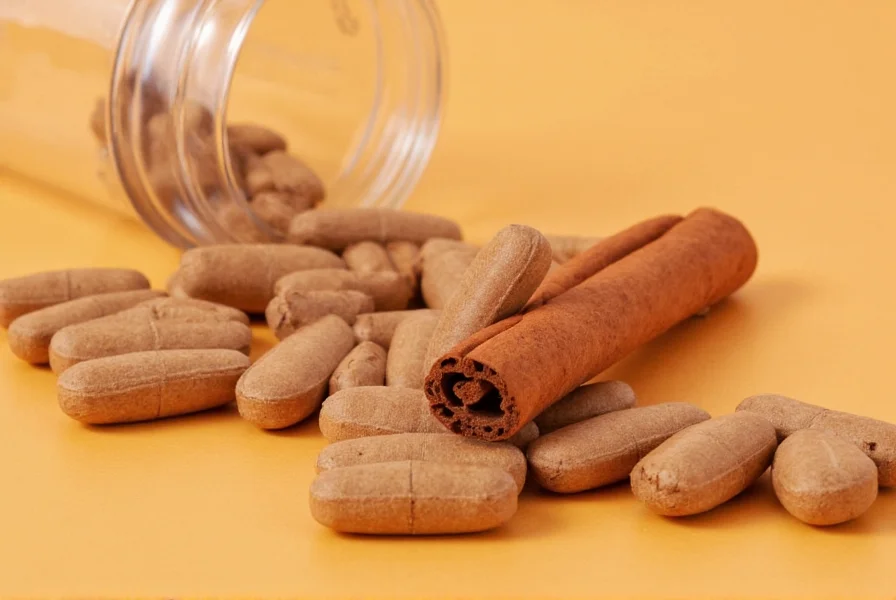For centuries, cinnamon has been valued not just as a culinary spice but as a traditional remedy across various cultures. Today, cinnamon pills have gained popularity as a convenient way to access potential health benefits without incorporating large amounts of the spice into daily meals. Understanding what science actually supports—and what remains uncertain—is crucial for making informed decisions about cinnamon supplementation.
Understanding Cinnamon Supplements
Cinnamon supplements typically come in capsule or tablet form, containing concentrated cinnamon extract or powder. Two primary varieties exist in supplement form:
- Cassia cinnamon - More common and less expensive, but contains higher levels of coumarin, which can be harmful in large doses
- Ceylon cinnamon - Often called "true cinnamon," with significantly lower coumarin content, making it safer for regular supplementation
When evaluating scientifically proven benefits of cinnamon supplements, it's essential to distinguish between the types, as research outcomes can vary significantly based on which variety was studied.

Evidence-Based Health Benefits of Cinnamon Pills
Multiple clinical studies have investigated the potential therapeutic effects of cinnamon supplementation. The most compelling evidence supports these specific benefits:
Blood Sugar Regulation
One of the most researched cinnamon pills for blood sugar control benefits involves glucose metabolism. A meta-analysis published in the Journal of the Academy of Nutrition and Dietetics found that cinnamon supplementation significantly reduced fasting blood glucose levels in people with type 2 diabetes. The mechanism appears to involve improved insulin sensitivity and slowed gastric emptying.
Research suggests that doses between 1-6 grams daily may provide benefits, though individual responses vary. It's important to note that cinnamon supplements should never replace prescribed diabetes medications but may serve as a complementary approach under medical supervision.
Anti-Inflammatory Properties
Chronic inflammation contributes to numerous health conditions. Cinnamon contains potent anti-inflammatory compounds, particularly cinnamaldehyde. Studies indicate that regular cinnamon supplement intake may help reduce inflammatory markers like C-reactive protein (CRP) and interleukin-6 (IL-6).
| Benefit | Effective Dosage Range | Research Support Level |
|---|---|---|
| Blood sugar regulation | 1-6 grams daily | Strong (multiple clinical trials) |
| Anti-inflammatory effects | 500mg-2g daily | Moderate (animal and human studies) |
| Antioxidant protection | 500mg-3g daily | Strong (in vitro and human studies) |
| Heart health markers | 1-3g daily | Moderate (limited human trials) |
Antioxidant Capacity
Cinnamon ranks among the most antioxidant-rich spices. The ORAC (Oxygen Radical Absorbance Capacity) value of cinnamon is exceptionally high, indicating strong free radical scavenging ability. Regular consumption of cinnamon capsules vs ground cinnamon benefits for antioxidant protection appears comparable when equivalent amounts are consumed, though supplements offer more consistent dosing.
Cardiovascular Health Markers
Several studies suggest cinnamon supplementation may improve certain heart disease risk factors. Research published in Nutrition Research showed that cinnamon consumption was associated with reductions in serum triglycerides, LDL cholesterol, and total cholesterol levels. However, the evidence for cinnamon pills and heart health remains less robust than for blood sugar effects, with more research needed to establish definitive recommendations.
Benefits With Limited Scientific Support
While cinnamon supplements show promise for several health concerns, it's important to distinguish between well-supported benefits and those with weaker evidence:
- Weight loss - Limited evidence suggests cinnamon might modestly support metabolic health, but it's not a weight loss solution
- Alzheimer's prevention - Promising in vitro studies, but human evidence is lacking
- Antimicrobial effects - Demonstrated in laboratory settings, but clinical relevance for human health is unclear
Many supplement manufacturers overstate potential benefits, so consumers should approach extraordinary claims with skepticism when considering how much cinnamon pill dosage is safe for their specific needs.
Potential Side Effects and Safety Considerations
While generally safe when used appropriately, cinnamon supplements can cause adverse effects, particularly with long-term use or high doses:
- Coumarin content - Cassia cinnamon contains significant coumarin, which can cause liver damage in sensitive individuals or with prolonged high-dose use
- Medication interactions - Cinnamon may interact with diabetes medications (increasing hypoglycemia risk) and blood thinners
- Allergic reactions - Though rare, some individuals may experience skin irritation or oral allergy symptoms
- Pregnancy concerns - High doses may stimulate uterine contractions; pregnant women should consult healthcare providers
The European Food Safety Authority recommends a maximum daily coumarin intake of 0.1 mg per kilogram of body weight. For a 150-pound person, this translates to approximately half a teaspoon of Cassia cinnamon daily. Those seeking regular supplementation should consider Ceylon cinnamon products, which contain negligible coumarin levels.
Optimal Dosage and Usage Guidelines
Determining the right cinnamon supplement dosage guidelines depends on several factors:
- Type of cinnamon - Ceylon allows for higher daily doses than Cassia due to lower coumarin content
- Health goals - Blood sugar management typically requires 1-3 grams daily, while general antioxidant support may need less
- Individual tolerance - Start with lower doses to assess tolerance before increasing
Most clinical studies showing benefits used between 500mg and 3 grams daily. For those concerned about cinnamon supplement side effects, starting with 500mg daily and monitoring for any adverse reactions is advisable. Dividing the dose throughout the day may improve absorption and reduce potential gastrointestinal discomfort.
Supplements vs. Dietary Cinnamon
While cinnamon capsules vs ground cinnamon benefits differ primarily in convenience and dosage consistency, both can contribute to health when used appropriately. Whole cinnamon in food provides additional fiber and may have different bioavailability of active compounds. Supplements offer standardized doses and eliminate variability in spice potency.
For therapeutic purposes targeting specific health concerns like blood sugar management, supplements provide more reliable dosing. For general health maintenance, incorporating cinnamon into your diet through cooking and beverages remains an excellent option.
Who Should Consult a Doctor Before Taking Cinnamon Pills
Certain individuals should seek medical advice before starting cinnamon supplementation:
- People with diagnosed liver conditions
- Those taking diabetes medications
- Individuals on blood thinners or antiplatelet drugs
- Pregnant or breastfeeding women
- People scheduled for surgery within the next two weeks
Healthcare providers can help determine whether cinnamon pills are worth taking for your specific health situation and whether potential benefits outweigh any risks based on your medical history and current medications.
Conclusion: Making Informed Choices About Cinnamon Supplements
Cinnamon pills offer several evidence-supported health benefits, particularly for blood sugar regulation and inflammation reduction. The most compelling research supports their use as a complementary approach for managing type 2 diabetes and improving metabolic health markers. However, benefits vary based on cinnamon type, dosage, and individual health status.
When considering cinnamon supplementation, prioritize Ceylon varieties for regular use, adhere to appropriate dosage guidelines, and consult healthcare providers if you have underlying health conditions or take medications. While not a miracle cure, cinnamon supplements can be a valuable component of a comprehensive approach to health when used knowledgeably and responsibly.
Frequently Asked Questions
What are the most scientifically proven benefits of cinnamon pills?
The most scientifically supported benefits include improved blood sugar regulation (particularly for type 2 diabetes), anti-inflammatory effects, and antioxidant protection. Research shows cinnamon supplements may help lower fasting blood glucose levels and improve insulin sensitivity. Some studies also indicate potential benefits for heart health markers like triglycerides and LDL cholesterol, though this evidence is less robust than for blood sugar effects.
How much cinnamon pill dosage is safe for daily consumption?
For Ceylon cinnamon supplements, doses up to 3 grams daily appear safe for most adults. For Cassia cinnamon, limit intake to 0.5-2 grams daily due to higher coumarin content. The European Food Safety Authority recommends no more than 0.1 mg of coumarin per kilogram of body weight daily (approximately 5mg for a 150-pound person). Most clinical studies showing benefits used between 500mg and 3 grams daily. Always start with lower doses to assess tolerance.
Can cinnamon pills help with diabetes management?
Yes, research suggests cinnamon supplements may help improve blood sugar control in people with type 2 diabetes. Multiple studies have shown that cinnamon can reduce fasting blood glucose levels and improve insulin sensitivity. However, it should never replace prescribed diabetes medications. People with diabetes should use cinnamon supplements as a complementary approach under medical supervision, as it may enhance the effects of diabetes medications and increase hypoglycemia risk.
What's the difference between Ceylon and Cassia cinnamon supplements?
Ceylon cinnamon ("true cinnamon") contains significantly lower levels of coumarin (a compound that can cause liver damage in high doses) compared to Cassia cinnamon, which is more common and less expensive. Ceylon is safer for regular, long-term supplementation. Cassia contains 1-5% coumarin by weight, while Ceylon contains only trace amounts. For therapeutic use or regular supplementation, Ceylon is generally recommended despite its higher cost.
How long does it take to see benefits from cinnamon pills?
Most clinical studies showing blood sugar benefits observed improvements after 4-12 weeks of consistent daily use. Anti-inflammatory effects may take several weeks to become noticeable. Individual responses vary based on health status, dosage, and cinnamon type. For best results, take cinnamon supplements consistently as part of a comprehensive health approach that includes proper diet and exercise. Don't expect immediate results, as natural supplements typically work gradually.











 浙公网安备
33010002000092号
浙公网安备
33010002000092号 浙B2-20120091-4
浙B2-20120091-4